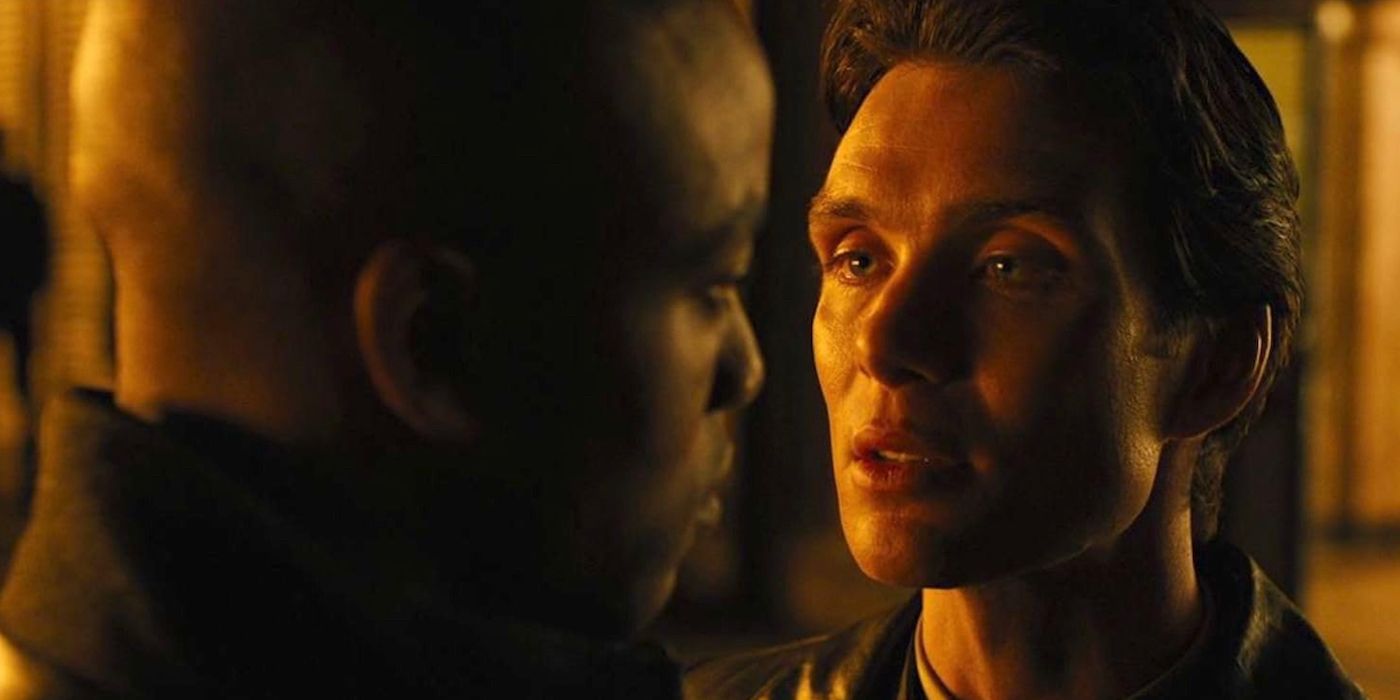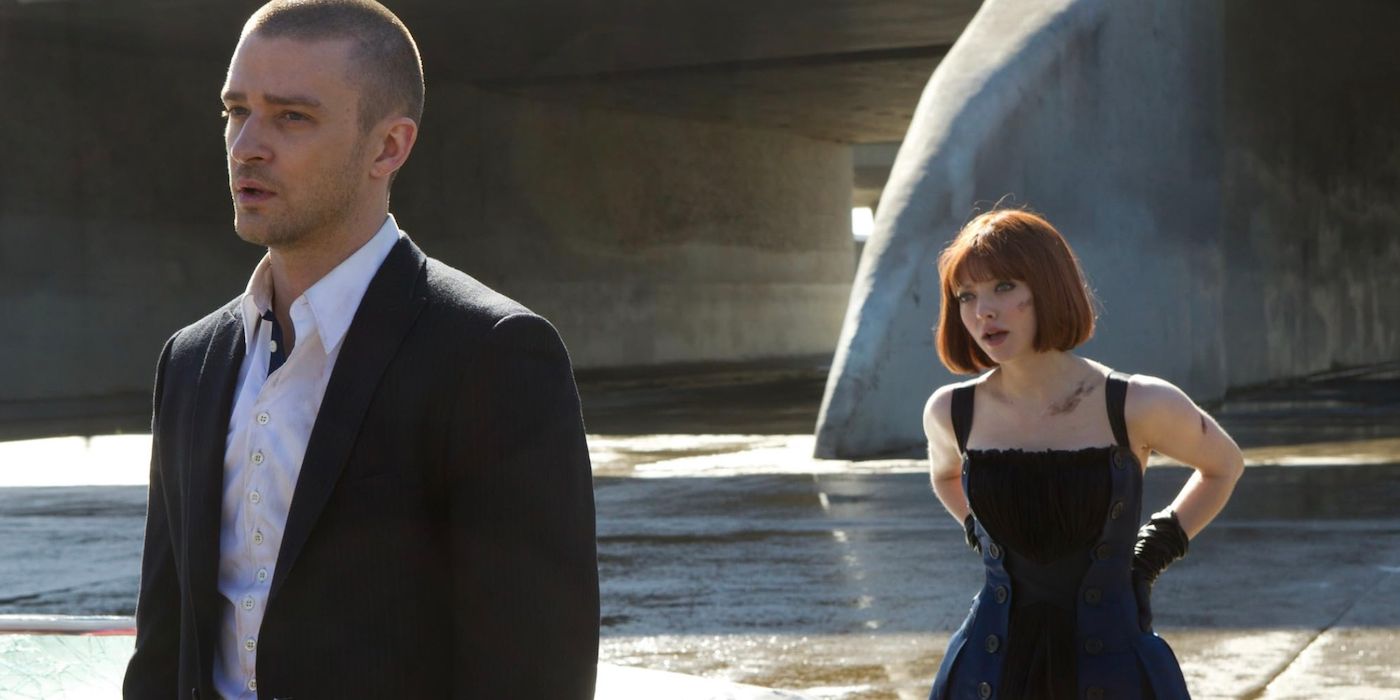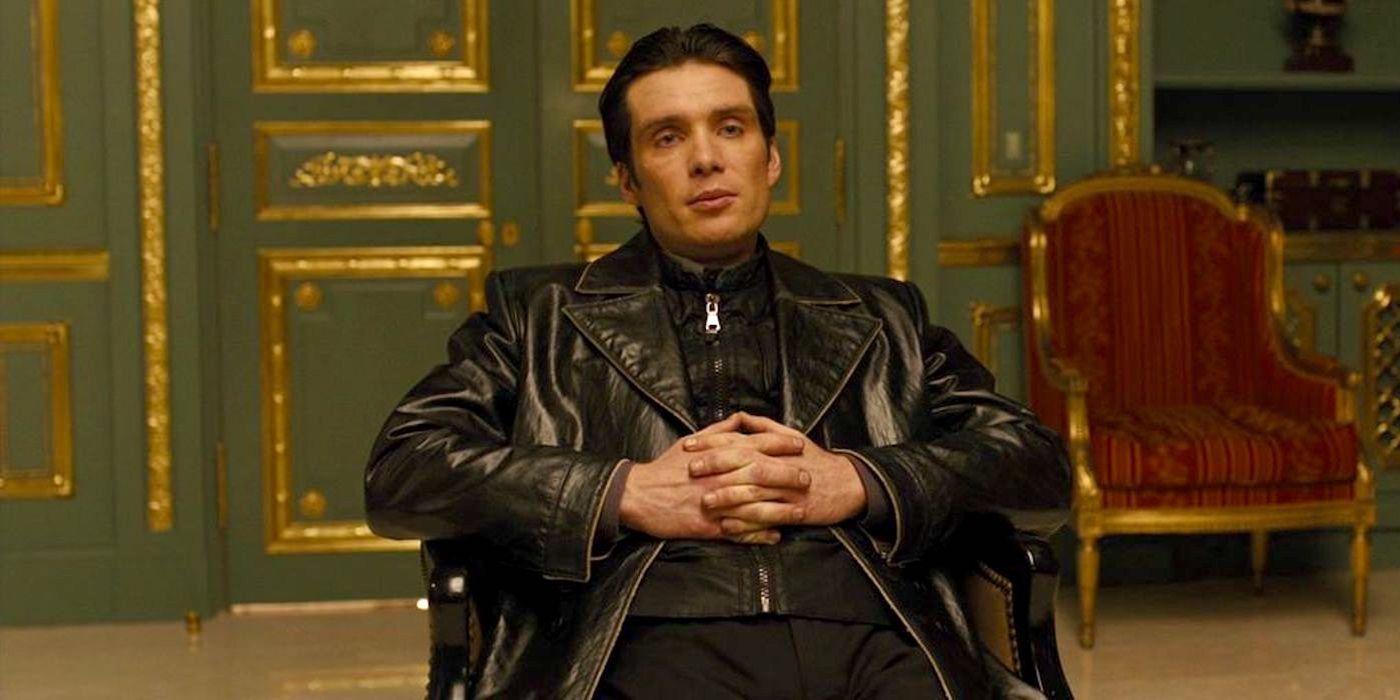The 2011 sci-film film from Andrew Niccol feels like a film that wouldn’t be made today.
- In Time explores a unique premise where time is a commodity, provoking discussions about relationships, economic inequality, and the value of life.
- Justin Timberlake delivers a standout performance as the protagonist, bringing depth to his character’s struggle and fleeting youthfulness.
- The supporting cast, particularly Amanda Seyfried and Cillian Murphy, adds depth to the film with their well-rounded characters and their roles in challenging the unfair system.
“Original science fiction” is a term that’s lobbied around a lot, but what defines originality? Even a film not based on previously existing intellectual property may draw inspiration from other classics within the genre. Interstellar is technically “original,” but owes a lot to 2001: A Space Odyssey; it’s almost impossible to talk about The Creator without mentioning The Terminator. However, Andrew Niccol is one of the few filmmakers working today whose films genuinely feel totally based on his own ideas. Niccol’s films may be flawed, but that doesn’t mean that he’s not telling the types of stories that haven’t been seen anywhere else. Niccol’s 2011 sci-fi thriller In Time presents the concept of time itself being a commodity. Although it’s not necessarily fleshed out in extensive detail, In Time’s premise provokes interesting discussion points about classical relationships, economic inequality, and the value of life itself.
In Time’ Has a Compelling Premise
In Time is set in the year 2169, where all of human life has been engineered to stop aging after the age of 25, and only given a year to live thereafter. While it shares a lot in common with Logan’s Run, In Time isn’t necessarily commentating on the lionization of a youthful essence. Rather, the film uses its premise to explore how the experience of living a long life is only available to an elite level of society that can pay for it — it essentially feels like an extended metaphor for the healthcare system. While the process of how these genetic advancements were made isn’t something that Niccol was necessarily interested in exploring, he makes up for the premise’s confusing aspects through strong characterization and charismatic characters.
Justin Timberlake gives one of his better screen performances as the factory worker Will Salas, who learns that the wealthy community of New Greenwich has been monopolizing time itself. The citizens of New Greenwich have essentially found a way to literally cheat time by making themselves immortal, but they’re not exactly willing to share their resources. The power elite in New Greenwich have exponentially raised prices on time, forcing those who can’t afford to pay for it to literally die out. Economic manipulation has a definite impact on lifespan, and Niccol decided to make that connection literal.
Timberlake has a unique career among musicians-turned-actors. While he benefited from being perfectly cast as a slimy weirdo in both The Social Network and Reptile, In Time gave him the chance to be a genuine leading man. While it may seem preposterous for someone as famous as Timberlake to be playing an “average Joe,” he successfully leans into Will’s fleeting youthfulness in order to create a unique performance. Yes, Will is seemingly “at his peak” at this point in his life, but he’s not given much time to actually enjoy it. Will is forced to hustle at every point in his day in order to afford a few precious hours to himself.
Why ‘In Time’s Characters Are So Good



Will would’ve risked being a bland protagonist if he was on his own, but In Time has the benefit of a great supporting cast. In Time is essentially a classical noir, and as is befitting for the genre, Amanda Seyfried gets to play the “femme fatale” role of Sylvia Weis. Sylvia is the daughter of the banker Philippe Weis (Mad Men’s Vincent Kartheiser), and is initially taken hostage by Will as a way to protect himself. However, Will later discovers that Sylvia has little knowledge of her father’s real intentions, and has much more empathy for those who don’t have the benefit of a wealthy family.
Will and Sylvie serve as the perfect pair of opposites – he isn’t given the time to actually age out, and she lives a seemingly meaningless existence in a society that doesn’t value anyone but those within their circle. They serve as the perfect avengers against this unfair system, and their romance feels genuine given the circumstances that they find themselves in. Niccol shows the ways that the two characters were raised to have unrealistic expectations about their futures through the scenes with their respective parents. Will’s mother Rachel (Olivia Wilde) lives a life that is almost entirely in service of others, and Sylvie’s father Phillippe spends his entire existence stealing from those that have less than him. It makes sense that both characters would be attracted to someone who has a more healthy appreciation of life.
Cillian Murphy Stuns as a Memorable Villain
The heroes of In Time would be nothing without a memorable villain, as there’s only so far that Niccol’s metaphor can go when it comes to criticizing the power of the upper class without someone to embody it. Cillian Murphy has played his fair share of villains, but In Time’s Raymond Leon is one of his best. As a timekeeper employed by the New Greenwich elite, Leon has the important role of policing the lower class in order to keep them powerless. Leon may seem intimidating initially, but he’s actually just a pawn in the system. Like Will, Leon was raised in an impoverished community, and only achieved his governmental rank in order to make a living.
In Time is keen to note the similarities between the two men. Leon chose to betray the lower class by selling them out to the citizens of New Greenwich. He’s sadly spending a lifetime trying to appease a society that will never accept him. In comparison, Will is attempting to change the time system by evening the playing field. His mother’s death reminds him that the people that he cares about most can be taken away at any moment. Although Timberlake gets to give a few inspirational speeches, it’s Murphy’s performance that is inherently more interesting. At the end of the film, Leon “times out,” as he failed to comply with the rules of the system that he’s been enforcing. In Time, despite being released only a little over a decade ago, feels like a film that simply wouldn’t be made today. Sure, the film has its occasional awkward moments, but that’s forgivable considering how many ambitious ideas it has. In Time’s recent success on streaming shows that ironically, this type of original sci-fi film hasn’t been “lost to time.”
show less